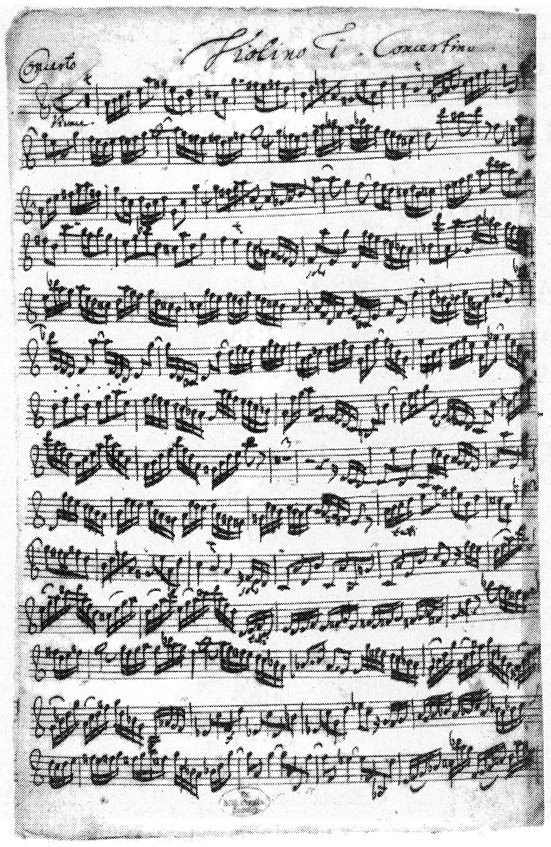

The last owner of the present fragment traced by the "Kritischer Bericht" is Nora Kluge (née von Hase) of Lübeck, wife of the composer and musicologist Manfred Kluge (1928-71), probably inherited from her grandfather, Oskar von Hase (1846-1921), proprietor of the music publishers Breitkopf & Härtel. The present leaf was one of four acquired from Jähns by the Viennese collector Gustav Petter (1828-68), who is thought to have been responsible for their dismemberment. Pistor’s manuscripts were inherited by his son-in-law, Adolf Friedrich Rudorff (1803-73), from whom they passed to the musicologist Friedrich Wilhelm Jähns (1809-88). Parts of the Wilhelm Friedemann Bach estate were again auctioned in 1827, being acquired by the inventor and collector Carl Philipp Heinrich Pistor (1778-1847). Provenance: The autograph score of BWV 188 is thought to have been among a group of manuscripts inherited by Bach’s impecunious eldest son, Wilhelm Friedemann, and sold by him at auction in 1774. The same source notes that the marked ink acidification which has affected the upper half of the present fragment is typical of the dismembered leaves, and is in part a result of the dense compositional script of the composer, in this instance with many tripletised semi-quavers. 17, is identified in the "Kritischer Bericht" of the Neue Bach-Ausgabe as A14 ("unbekannter Privatbesitz"). The present fragment, which comprises the lower half of fol. Although the resulting fragments are now located in ten holdings in eight countries, they are nevertheless sufficiently continuous to enable the 2nd to 5th movements to be reconstituted. The remaining leaves are now widely scattered, with four leaves being cut up (as here) into two or even three pieces. Bach's original manuscript for BMV 188 has suffered more vicissitudes than most, with the first 10 of the 18 leaves being lost at an early date (probably before the 1827 auction of the estate of Wilhelm Friedemann Bach), taking with them the great majority of the first movement.

In the fourth movement, the dramatic heart of the cantata, the text "Unerforschlich ist die Weise" ("The ways of the Lord are past understanding," a meditation on the cross and human suffering) is elaborated as a dark, expressive aria for alto voice set against a virtuoso organ obbligato.

The ensemble is made up of four voices, two oboes, viola, organo obbligato and basso continuo. Bach wrote the piece in the key of E minor, which he frequently associated with the crucifixion. Most likely composed for Octo(or possibly November 6, 1729), BMV 188 is a cantata for the 21st Sunday after Trinity and uses text drawn from Picander. Displayed in a handsome custom-made blue morocco portfolio, with only the attractive lower half displayed. The present fragment comprises 11½ bars from the conclusion of the movement, including the words "â€Â¦Seinen führt, unerforschlich ist die Weise, Wie der Herr die Seinen führt, unerforschlich ist die Weise, Wieâ€Â¦" The piece has been inlaid in a larger sheet and encapsulated in archival mylar the lower stave is in very good condition with minor ink acidification, while the upper system is affected by heavy ink corrosion causing a number of cracks and losses, reinforced with early archival film (now toned). This section is the lower half of folio 17 of the original manuscript, comprising bars 59b-66 and 73-76 of the 4th movement, scored for alto with cello and organ obbligato, on four systems of four hand-drawn staves. Remarkable autograph musical manuscript by Johann Sebastian Bach, one page both sides, 7.75 x 6.25, no date but circa 1728, being a fragment from the church cantata Ich habe meine Zuversicht (BWV 188).


 0 kommentar(er)
0 kommentar(er)
